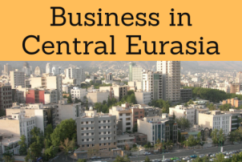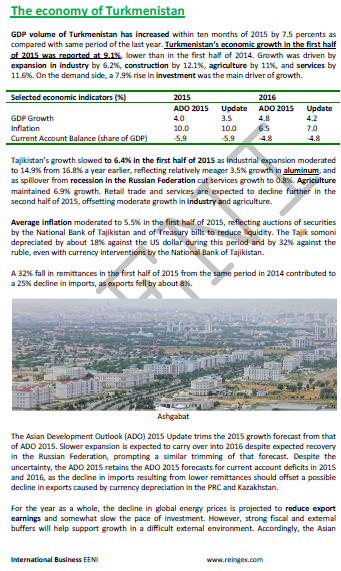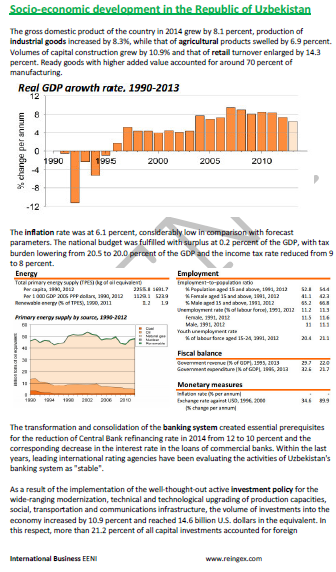Central Asia Region

Foreign Trade and Business in Central Asia Countries: Kazakhstan, Turkmenistan, Uzbekistan.
- Economic Cooperation Organization Region
- Central Asian Economy and Global Trade
- Business in:
- Afghanistan
- Kazakhstan
- Kyrgyz Republic
- Tajikistan
- Turkey
- Turkmenistan
- Uzbekistan - Eurasian Economic Community (EurAsEC) - Succeeded by the Eurasian Economic Union (EAEU)

The Subject “Foreign Trade and Business in Central Asia” belongs to the following Online Programs taught by EENI Global Business School:
Masters: International Business, Foreign Trade.
Doctorate: Islamic Business, World Trade.
Languages:  or
or  Asia Central
Asia Central  Asie Centrale.
Asie Centrale.
EENI Online Masters and Doctorate in International Business for the Central Asia Students:  Kazakhstan,
Kazakhstan,
 Kyrgyzstan,
Kyrgyzstan,
 Tajikistan,
Tajikistan,
 Turkmenistan, and
Turkmenistan, and  Uzbekistan.
Uzbekistan.

International Trade and Business in Central Asia Countries.
The Economic Cooperation Organization (ECO) region involves ten Central Asian economies: the Islamic State of Afghanistan, Azerbaijan Republic, the Islamic Republic of Iran, the Republic of Kazakhstan, Kyrgyz Republic, the Islamic Republic of Pakistan, the Republic of Tajikistan, the Republic of Turkey, Turkmenistan, and the Republic of Uzbekistan.
The main religions in Central Asia: Islam and Orthodoxy.

The Republic of Kazakhstan is the second biggest states of the former Union of Soviet Socialist Republics. The Republic of Kazakhstan haves immense untapped fossil-fuel reserves and other minerals and metals. Kazakhstan also has significant agricultural potential with its immense steppe lands. The industrial sector of the Republic of Kazakhstan remains on natural resources extraction and processing .
The people of the Kyrgyz Republic have usually elevated livestock and occupied in farming. Cotton, wool, and meat are the main agricultural export products. Other important resources are coal, nonferrous metals, antimony and mercury ores. Gold mining has augmented in magnitude. Hydroelectric power provides 3/4 of the electric energy of the Kyrgyz Republic.
The Tajik Economy has been gravely weakened by the civil war (1992-97). Owing to that, the Republic of Tajikistan has shown the next-to-lowest per capita GDP in the former Union of Soviet Socialist Republics and an extremely low standard of living. Agriculture is the pillar of the economy of the Republic of Tajikistan, with cotton being the largest crop.
The main economic sector of Turkmenistan is: cotton cultivation, petrol and natural gas extraction. Turkmenistan the tenth world's cotton producer. Turkmenistan takes the fourth place in the World for gas resources and has significant petroleum reserve.

The Republic of Uzbekistan is one of the leading world cotton producers. The Republic of Uzbekistan occupies the fourth place in the World by producing cotton fiber and the second place by its export. Uzbekistan exports a large volume of natural gas.



